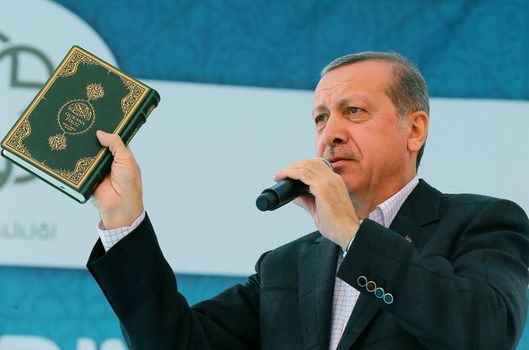The title of this article may seem to most as a counterintuitive assertation or an oxymoron argument given the fact that Turkey has had a dominant pro-Islamist party in power for the last 20 years. This party, which is AKP, and its leader, who is President Erdogan, have been trying to do everything in their power to create, what they call “a pious generation” in Turkey. They want to build a more conservative, more religious society.
Did they achieve their goals? Is Turkish society more religious, and more conservative than it was 20 years ago? Some people genuinely believe that the AKP government achieved its goals and they somehow managed to change the fabric of the society into a more religious one. I have very strong doubts about this.
I strongly believe quite the contrary is true for Turkey and Turkish society is secularizing very rapidly partly because of what the AKP and the institutions have been doing for a long time. I believe we are witnessing a backfiring of a kind of social engineering orchestrated by this government.
To be able to properly explain my point maybe we should distinguish two things: There is the concept of laïcité which is focused on the separation of religion and state powers. There is, on the other hand, secularism that shows us how people act and live their lives, and whether their decisions and preferences are influenced by religion.
If we can make such a distinction, I can say that laïcité has long been in decline in Turkey whereas secularism has been on the rise. The more the government has been trying to impose religion on society, the more people stay away from religion. To put it mildly, all these efforts of the government trying to create a pious society have yielded almost nothing.
In every corner of the country, religious vocational high schools have been erected. Mandatory religious lessons are in place in all secondary and high schools which are reinforced with “optional” other religious curricula. The government spent billions of Turkish liras to make the Directorate of Religious Affairs a much more powerful institution that is supposed to exert moral authority over society.
You can see the chair of the Directorate of Religious Affairs speaking about every important event in Turkey. You can come across his photos praying in his religious attire when some new buildings of state institutions, such as the new compounds of the Turkish Intelligence Service opened, with him blessing these institutions.
Do people have more respect for the Directorate of Religious Affairs as it became so dominant in the “new Turkey”? Results of Metropoll’s most recent survey (August 2022) indicate quite the contrary: They asked the participants whether they rely on the statements of the Directorate of Religious Affairs. Only 24.9 percent of them said “yes,” whereas 70.4 of the participants said “no.”
Metropoll’s 2021 survey also indicates fundamental preferences of Turkish society, when they asked, “which is important for you?,” the answers followed:
My freedom is 59.7%
My economic situation is 55.2%
My religion is 28.3%
Another Metropoll survey (2022) shows how Turkish society describes themselves:
Religious-conservative 31.5%
Secular-modern 36.1%
Modern-conservative: 24.4%
When people are asked whether the state should interfere with the lifestyles, dressing, worship and so on (Metropoll, 2021) 83.2% said “no.”
Konda research (2021) show similar trends: the number of people who describe themselves as an atheist was 0.7 in 2008, and they become 4% in 2021. The number of people who describe themselves as religious decreased from 54.2% to 46.6% in the same period.
We can look at some other indicators to assess in which direction the society goes in terms of becoming more religious or more secular. For example, this government is trying to do everything to encourage people to get married and have more children. The result? According to the Turkish Statical Institute, between 2001-2021 marriage rate has been decreased by 20%, and divorce rates, however, has been increased by 47%.
I can give you more examples to support my point. For example, we witnessed a new trend of women who were taking their headscarves off when the hashtag “ten years challenge” became a trending topic in 2019, when they put their pictures with headscarves from ten years earlier and without it in their recent photos. We do not know how many women removed their headscarves, but it is obvious that there is a new trend.
What caused all of these? Urbanization, moving from villages to cities may have some effects and you can add up some other elements. Maybe the number of people who appreciate the “modern” lifestyle has been increasing after seeing what ISIS and Taliban did and are still doing to women and society. But I also believe that the AKP government’s mixture of religion and politics and their efforts to impose religion on society is backfiring. When you mix politics and religion, the latter gets its fair share when things go wrong in the former. Corruption allegations, witnessing suddenly obtained wealth of the government supported tycoons whereas feeling every terrible effect of economic crises in their lives may be other factors to count.
Turkey’s staying away from the laïcité may even be increased if this government wins the upcoming elections, but I believe they cannot create a religious society by just imposing religion on the people. Social engineering does not work. And religious affairs are not immune from this reality.
Hits: 6
